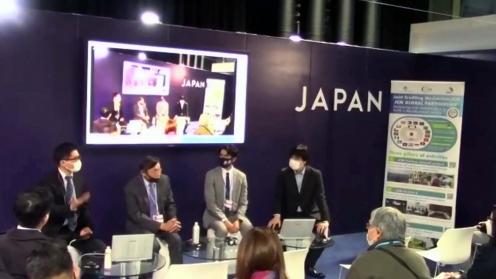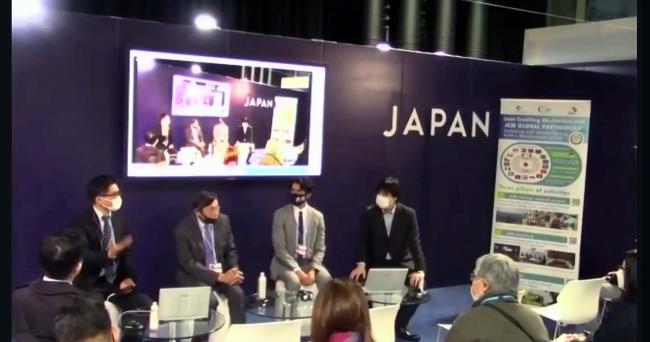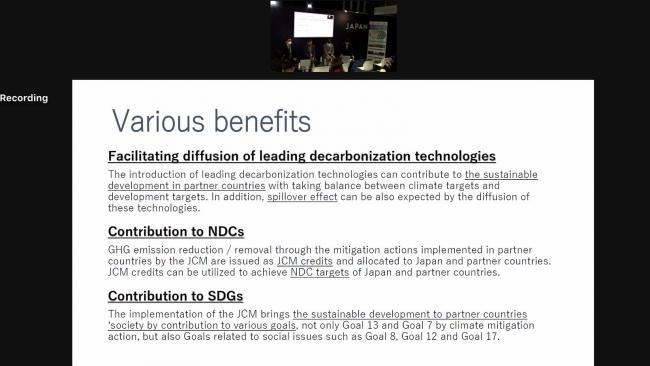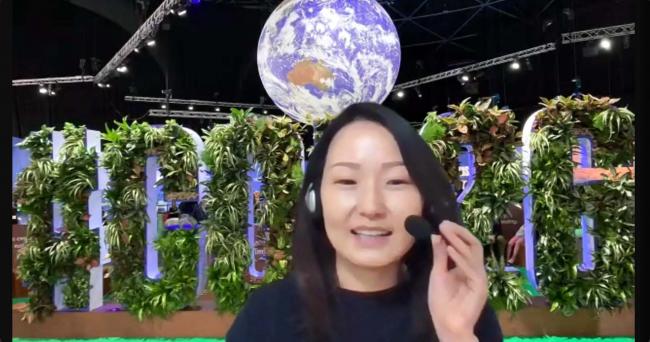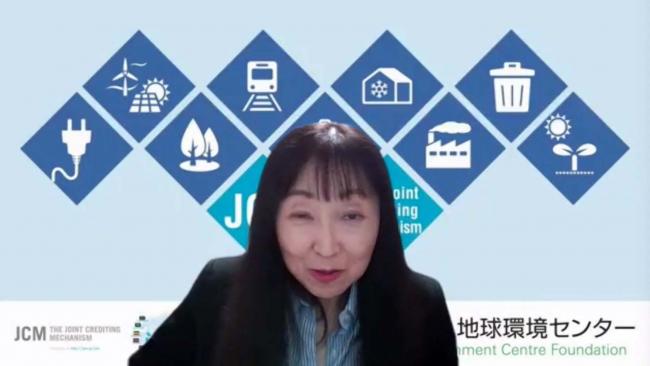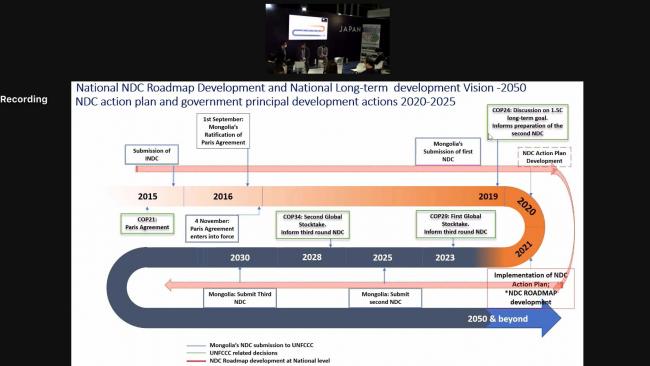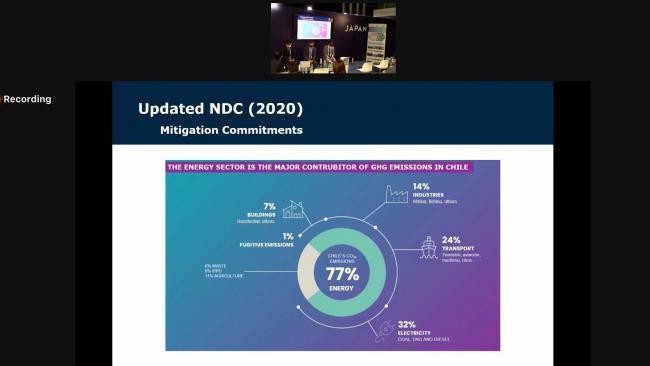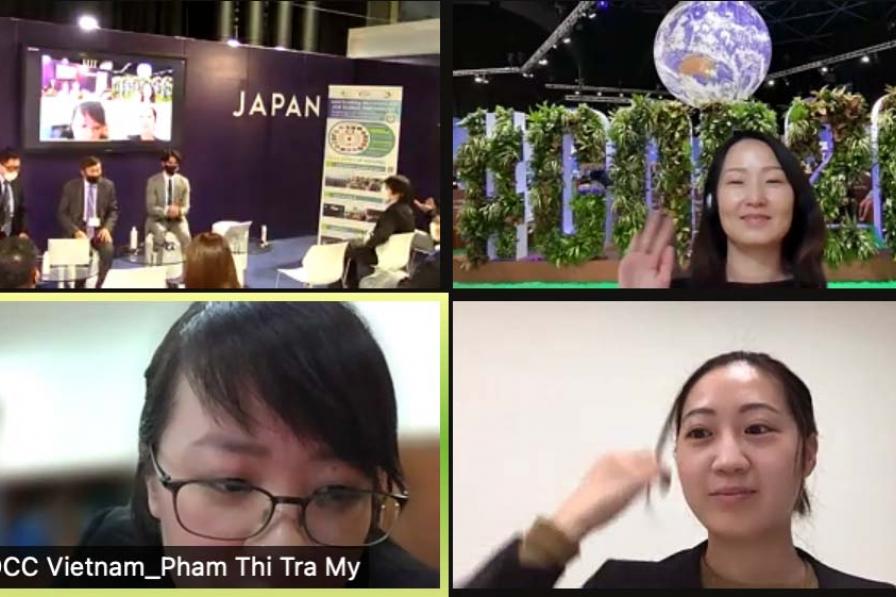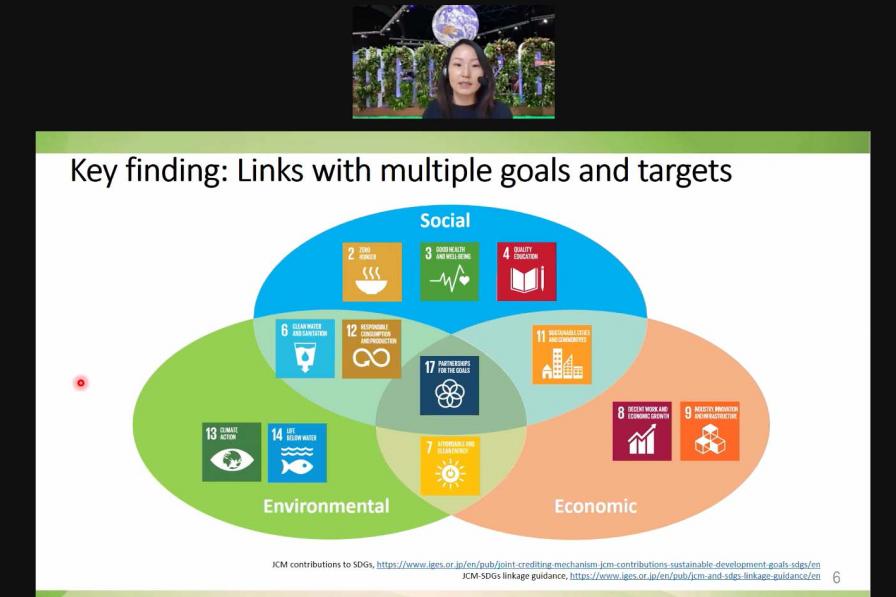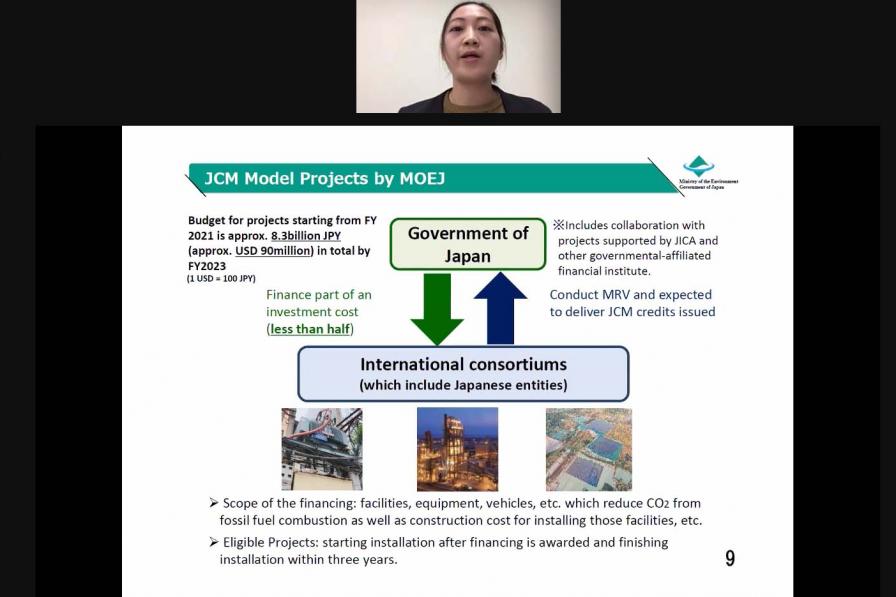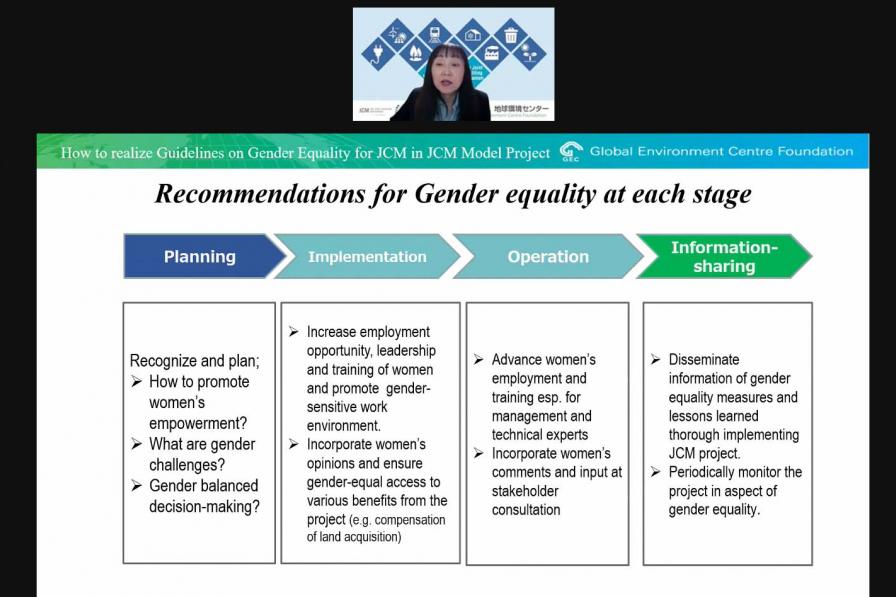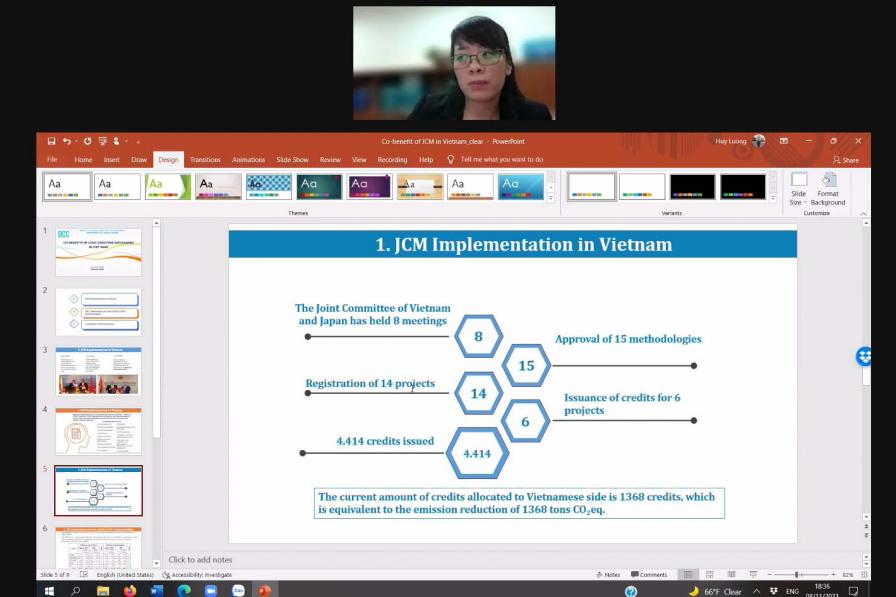Implementing the Joint Crediting Mechanism (JCM) and Creating Various Benefits for Stakeholders
The Joint Crediting Mechanism (JCM), a bilateral cooperative mechanism between Japan and partner developing countries, aims to facilitate diffusion of low-carbon technologies and implementation of mitigation actions, as well as contribute to the sustainable development of partner countries. This event focused on the JCM’s roles and benefits, and included updates from partner countries. It was organized by the Overseas Environmental Cooperation Center (OECC), Japan, and the Ministry of the Environment of Japan.
Opening Remarks
The event was facilitated by Makoto Kato, Principal Researcher and Member, Board of Directors, OECC. Eri Matsumoto, Ministry of the Environment, Japan, provided an overview of Japan’s target of reducing its greenhouse gas (GHG) emissions by 46% below 2013 levels by 2030, and achieving net zero by 2050. She said the JCM will contribute to this target through its goal of achieving cumulative reductions of about 100 million tons of CO2 through public-private partnerships. Matsumoto explained that under the JCM:
- Japan supports partner countries by providing advanced decarbonizing technologies in line with partner countries’ needs;
- with government support, companies from both Japan and partner countries jointly implement projects to reduce GHG emissions; and
- credits resulting from the emission reductions and removals are shared by the participating countries.
She provided examples of JCM projects, such as a waste heat recovery in the cement industry project in Indonesia and a hydro power plant in the Philippines.
Wataru Tohze, OECC, noted the use of carbon market mechanisms, including the JCM, is articulated under Article 6 of the Paris Agreement (cooperative approaches). He emphasized the JCM provides co-benefits, including:
- facilitating diffusion of leading decarbonization technologies that can contribute to partner countries’ sustainable development;
- contributing to Japan’s and partner countries’ Nationally Determined Contributions (NDCs), through credits acquired from JCM projects; and
- contributing to the Sustainable Development Goals (SDGs), including SDGs 7 (affordable and clean energy), 8 (decent work and economic growth), 12 (responsible consumption and production), and 13 (climate action).
Temuulen Murun, Institute for Global Environmental Strategies (IGES), presented the outcomes of an IGES study JCM Contribution to SDGs. She outlined key findings, using two case study examples of JCM projects in Mongolia and Viet Nam. Murun described a solar farm JCM project implemented in Mongolia, which resulted in, inter alia: increased production of electricity that was then sold to the national grid; additional revenue through the sale of electricity; increased vegetable production; and sustainability through agriculture training provided to farmers. She also highlighted a water pumps project implemented in Viet Nam, which resulted in: increased water supply by about 50,000 tonnes per day; improved energy efficiency of around 20%; a better working environment because of the much quieter new equipment; and sustainability through technical training sessions.
Masami Ishihara, Global Environment Centre Foundation (GEC), presented on the Guidelines on Gender Equality for the JCM. She underscored that the Guidelines aim to achieve women’s empowerment, gender-balanced decision making, and women’s health and wellbeing. Ishihara then presented recommendation for ensuring gender equality at each stage of the JCM process, including through training, information dissemination, and monitoring effectiveness. She also outlined the results of an online survey on the guidelines, undertaken by GEC in September 2021 among JCM project participants. She said the survey aimed to assess participants’ awareness of the guidelines and the extent to which they were implemented in their projects.
Partner Country Presentations
Batjargal Zamba, Mongolia, described the JCM’s contributions to Mongolia, noting that the most important projects are renewable energy projects, which are contributing to the country’s renewable energy target of increasing renewable electricity capacity from 7.6% in 2014 to 25% by 2025 and 30% by 2030. He said, currently, the total contribution of JCM projects is around 38 MW, which is about 16% of the country’s installed capacity of renewable energy. He also outlined other co-benefits including air pollution abatement.
Pham Thi Tra My, Viet Nam, presented on implementation of the JCM in her country, highlighting that, thus far, 14 JCM projects have been registered, 15 methodologies approved, and credits have been issued for six projects. She outlined co-benefits of JCM projects, including: scaling up clean energy use; reducing barriers to the introduction of low-carbon technologies; promoting sustainable urban and transport development; and strengthening capacity to access foreign investment.
Felipe Andrés Díaz Borquez, Ministry of the Environment, Chile, described Chile’s climate change objectives and the JCM’s contributions to achieving these objectives. He underlined that Chile’s energy sector is the main source of GHG emissions in the country. Borquez provided a progress report for all selected JCM projects in Chile, including four solar power projects and one rice husk power generation project.
Contact
Wataru Tohze, OECC | wataru.tohze@oecc.or.jp
More Information
To receive free coverage of global environmental events delivered to your inbox, subscribe to the ENB Update newsletter.
